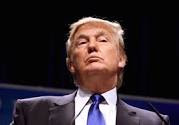It's come to this! Desperate times call for desperate measures. The White House and Congress are now controlled by those who wish to do great harm in our world. Since the U.S. political forces are joined against all people of good will, we now must rely on the good witches all over the planet to put a binding spell on Trump and his entourage, which will counteract the evil they are perpetrating on citizens of our country and the world--and the Earth itself. Please join forces with the witches tonight at midnight (the time in your area) and perform the binding spell with them. If you don't have a Tarot deck, just print this e-mail with the Tower card image and Trump photos included below.
I see by the following article that evangelistic Christians are going to pray to protect Trump from the spell. In this case, I think anyone with a working brain and a compassionate heart will agree that these self-defined Christians are duped, are definitely on the wrong side, and that their prayers to uphold the dastardly Trump administration, therefore, will be ineffective. Because goodness is at its core intent, the binding spell will succeed, and Trump will be out of office well before his first year is up...maybe even before the first 100 days. See below for the spell instructions. Onward, Wiccan soldiers! (~.~) (If you choose not to join in with the spell casting, at least wish the witches well in their godly effort.) :-)
Witches mobilize to cast a binding spell on President Trump
By Aris Folley, AOL.com
Get your covens ready.
Protest may be the new brunch, but witches are joining together worldwide in a more magical form of resistance to cast a spell on President Donald Trump, reports say.
A document circling the internet in both private and public witchcraft groups contains a spell to bind Trump to all who abet him, and even muggles (non-magic folks for those unfamiliar with Harry Potter) are encouraged to participate.
The binding ritual is to be performed monthly by those who practice the craft until Trump is removed from office.
The mass spell is to be performed on every waning crescent moon at the stroke of midnight EST in order for it to work.
The first spell cast event is set to occur on Friday, Feb. 24. Similar events are anticipated to follow on March 26, April 24, May 23, etc.
Until Trump is out office, that is.
As some may have already expected, reports say that some Evangelical Trump supporters hip to the witches' plans are prepping to pray en masse Friday night to zero out the spell's effects.
For those who ask if it will work, there is only one way to find out. Luckily, we've got the supplies and instructions for you below.
Supplies
- Unflattering photo of Trump

- Tower tarot card.
- Tiny stub of an orange candle
- Pin or small nail
- White candle, representing the element of Fire
- Small bowl of water, representing elemental Water
- Small bowl of salt, representing elemental Earth
- Feather, representing the element of Air
- Matches or lighter
- Ashtray or dish of sand
Once you have all of the materials needed, you're instructed to inscribe "Donald J. Trump" onto the orange candle using the pin or nail.
After, arrange the remaining items in a circle, leaning the tarot card onto something so that it stands vertically.
Then you can start reciting the banishing ritual, which includes lines like:
(Light white candle)
Hear me, oh spirits
Of Water, Earth, Fire, and Air
Heavenly hosts
And spirits of the ancestors
(Light inscribed orange candle stub)
I call upon you
To bind
Donald J. Trump
So that he may fail utterly
That he may do no harm
To any human soul
Nor any tree
Animal
Rock
Stream
or Sea
Bind him so that he shall not break our polity
Usurp our liberty
Or fill our minds with hate, confusion, fear, or despair
And bind, too,
All those who enable his wickedness
And those whose mouths speak his poisonous lies
I beseech thee, spirits, bind all of them
As with chains of iron
Bind their malicious tongues
Strike down their towers of vanity









